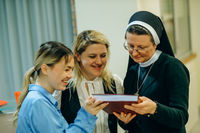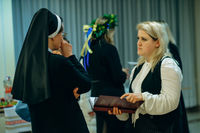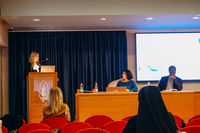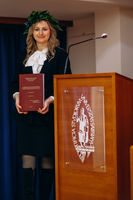Ukrainian Scholar Defends Doctoral Dissertation in Psychology at the Pontifical Salesian University
Recently, Olena Shust, a doctoral student of the Lviv Archeparchy, successfully defended her dissertation, titled The Psychosocial Dimension of International Conflicts and Peacebuilding through the Prism of Collective Historical Trauma: A Pilot Study of Ukrainians’ Perceptions of the Russian-Ukrainian Case.
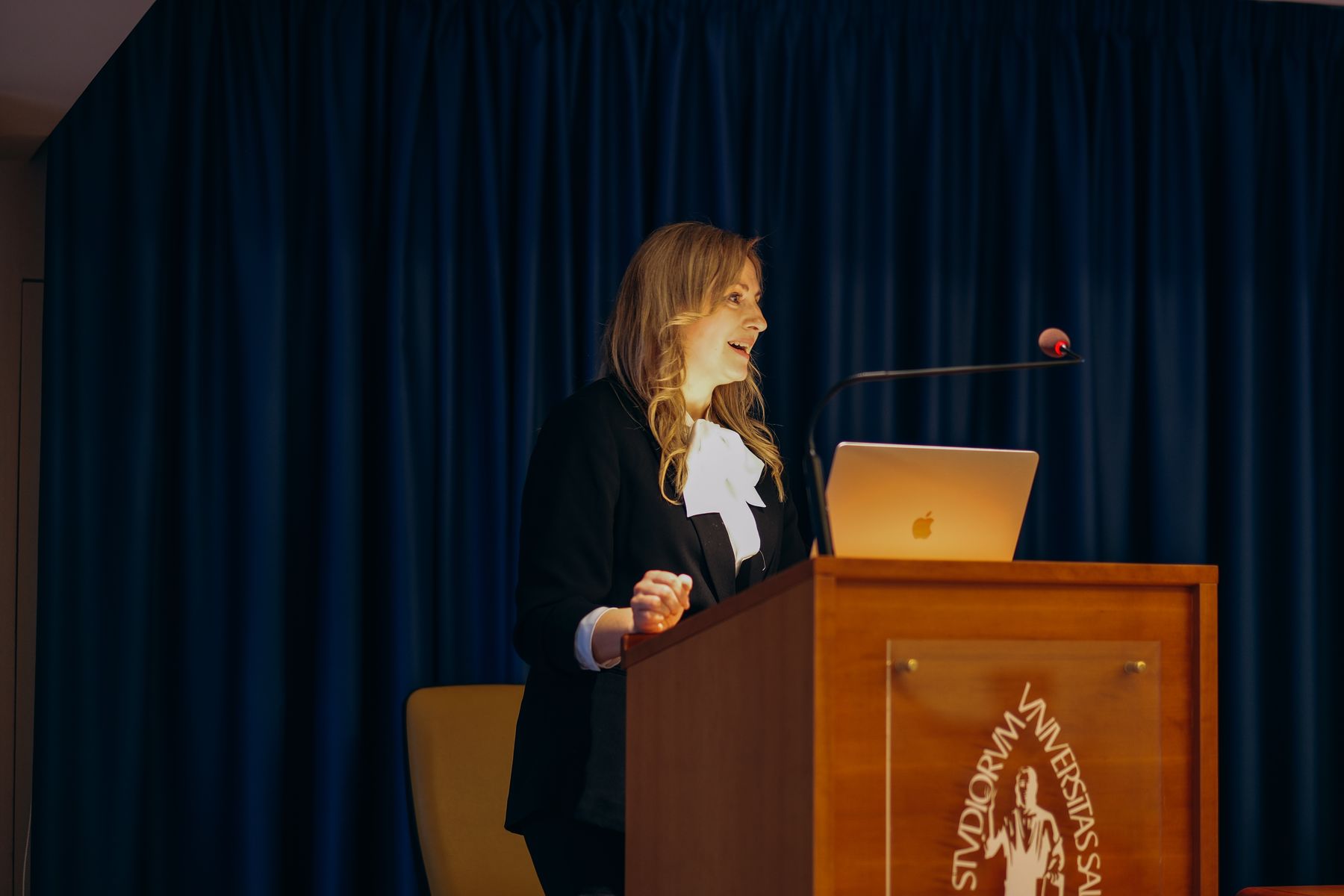
The authoritative committee, consisting of Prof. Sara Schietroma, Prof. Giuseppe Crea and Prof. Anna Rita Colasanti, highly appreciated the work, highlighting its scientific novelty and social significance. The discussion was moderated by Prof. Kevin Ottieno Mwandha, who facilitated a deep and meaningful dialogue.
This study is the result of four years of dedicated research, offering an in-depth examination of the psychosocial aspects of violent conflict. Particular attention is given to cases where identity becomes a central issue, fundamentally altering the course of events. Olena Shust explores asymmetric conflicts, in which one party holds a significant advantage in resources, status, or privileges. This phenomenon is especially relevant in the context of decolonization, where struggles for rights and dignity play a pivotal role in reshaping the global social and political landscape.
In her research, Ms. Olena not only provides a scientific analysis but also delves into the human dimension of pain, the pursuit of justice, and the aspiration for reconciliation—critical elements in the path toward peace. A key focus of the study is the role of collective trauma as a marker of identity. When left unaddressed, such trauma extends beyond the immediate repercussions of violence, perpetuating cycles of suffering across generations.
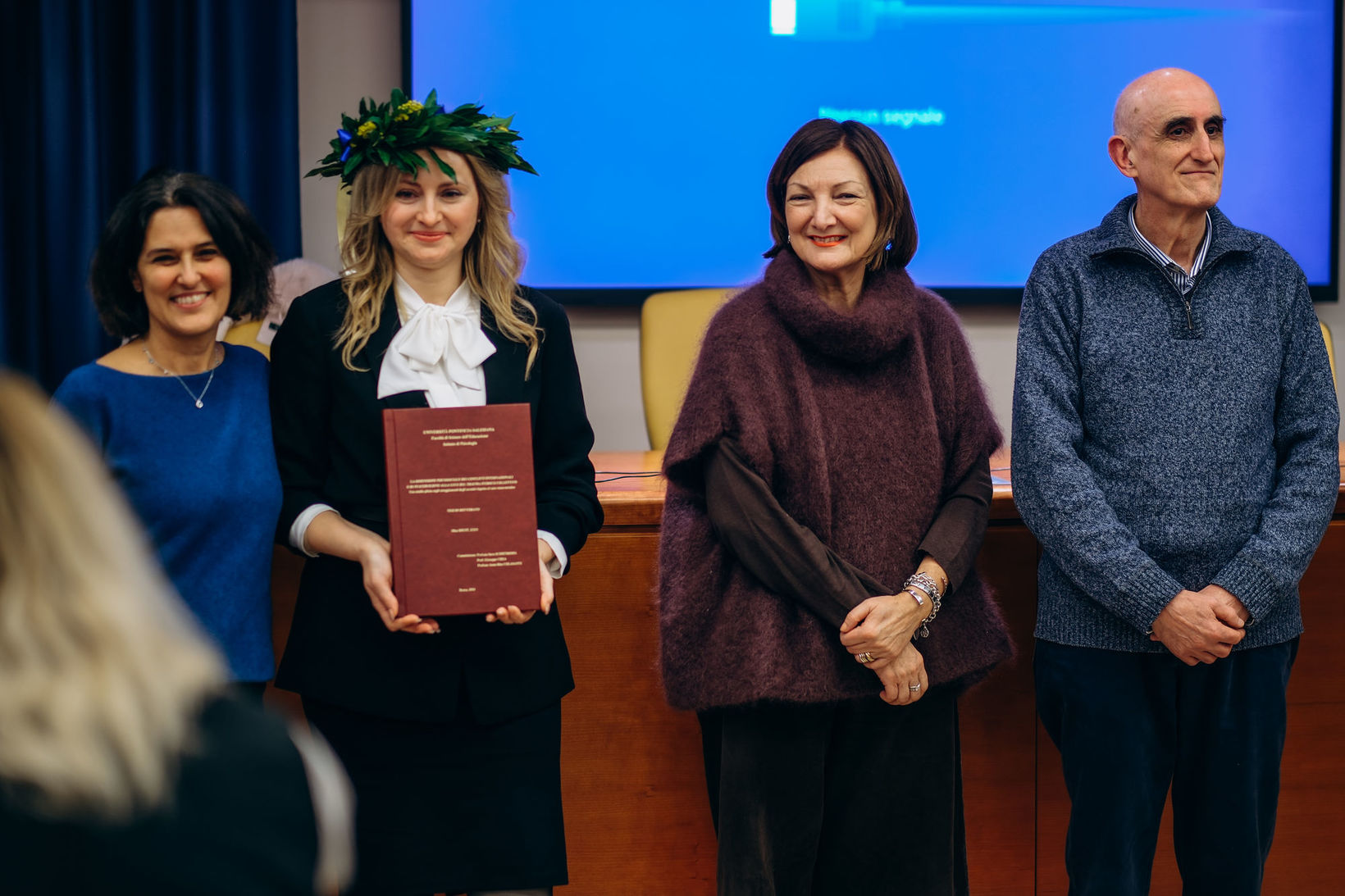
“I have been investigating how historical trauma, though not always visible at first glance, continues to shape social cohesion and influence political and international dynamics. This trauma significantly increases the risk of recurring violence, particularly in ‘hot spots’—regions where collective wounds remain unhealed. It becomes an invisible thread linking past and future, fueling the recurrence of conflicts and hindering recovery processes,” the researcher explained.
She compares this phenomenon to individual trauma: just as a person can repeatedly relive their trauma, entire nations can become trapped in cycles of collective traumatization.
The significance of this study for Ukraine is especially apparent in light of the ongoing war. Notably, the research topic was chosen in 2021, prior to the full-scale Russian invasion in 2022. By examining current events through a psychological lens, the study traces their deep historical roots, shedding light on how the past shapes the present.
A pilot study conducted among 408 individuals, evenly distributed across three regions of Ukraine, revealed empirical links between identity conflict, asymmetric conflict, and historical trauma.
While the war continues, this research does not claim to offer definitive answers to all questions. However, it underscores the urgency of addressing both contemporary and historical trauma to ensure lasting peace. As Ms. Olena emphasizes, healing these wounds is essential to fostering true reconciliation and building a harmonious society in the post-war era.
Ruslana Tkachenko for The UGCC Department of Information